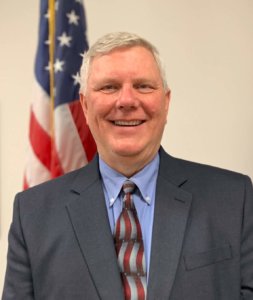Utah Story Archive
Utah First Credit Union Scores Another Win as One of Utah’s Best Companies to Work For in 2023
Utah Business Honors the Organization With Employee-Voted Recognition
Data Breach Notification Law Update: Utah and Pennsylvania
 April 14, 2023 — For businesses subject to data breach notification requirements in Utah and Pennsylvania, a series of significant amendments will soon go into effect in both states. Below is a summary of those amendments.
April 14, 2023 — For businesses subject to data breach notification requirements in Utah and Pennsylvania, a series of significant amendments will soon go into effect in both states. Below is a summary of those amendments.
The Governor of Utah signed S.B. 127 into law on March 23, 2023, amending state data breach disclosure requirements and creating a new state “cyber center” tasked with receiving and managing breach disclosures, collaborating with state and federal agencies in the development of cybersecurity incident response measures, and developing a statewide strategic cybersecurity plan by June 2024, along with other duties. The amendments take effect in early May.
A number of significant amendments to Pennsylvania’s data breach law are set to go into effect on May 3, 2023. Notably, an expanded definition of “personal information” will include medical and health insurance information, and a user name or email address in combination with a password or security questions and answers that would permit access to an online account. Read more
2 Helps Utah Community Credit Union Achieve Significant Growth by Attracting Younger Members
Credit Union harnesses the power of Q2’s digital banking platform and its financial wellness solutions to meet the expectations of tech-savvy accountholders
Q2 Holdings, Inc., a leading provider of digital transformation solutions for banking and lending, today announced that Utah Community Credit Union (UCCU) has transformed its digital banking experience to meet the expectations of younger account holders while achieving significant business outcomes, including new account openings, increased member satisfaction, decreased call volume and growth in external transfers.
UCCU’s CIO Justin Olson said, “We have experienced extraordinary growth in both assets and members over the last five years, which speaks highly of the direction we’ve gone with our technology through our partnership with Q2. Overall, assets are up. New member growth is strong. Loan growth is strong. Online and mobile banking traffic and transactions are up significantly.” Read more
Utah’s America First Announces $500K Endowment to University
Courtesy of CUToday.info
 Sept. 5, 2022 —America First Credit Union (AFCU) has announced a $500,000 endowment to Utah Valley University (UVU) for the university’s Gary R Herbert Institute for Public Policy.
Sept. 5, 2022 —America First Credit Union (AFCU) has announced a $500,000 endowment to Utah Valley University (UVU) for the university’s Gary R Herbert Institute for Public Policy.
“UVU says the number one barrier for students applying for internships in D.C. is the personal cost,” America First said. “Most families cannot afford the significant expenses associated with this type of program, particularly for those living in underserved populations. In addition to their tuition, UVU students participating in the program have additional expenses such as housing and a higher cost of living. The Utah federal delegation pays interns $2,000 a month for more-than-full-time work, while some other internships are unpaid. The need for financial support for the program is evident.”
The funding will support the America First Credit Union Undergraduate Fellowship Program. AFCU’s $500,000 gift will allow UVU to send its “best and brightest students to Washington, D.C., to participate in the life-changing experience,” AFCU said.
‘Life-Changing Experience’
“Not long ago, Governor Herbert met with our team about the importance of educating tomorrow’s leaders,” said Nicole Cypers, vice president of governmental affairs at AFCU. “We talked about the importance of internships in government and how gaining experience in Washington can be a life-changing experience for students. We know this is an expensive opportunity that not everyone can afford. With this in mind, America First Credit Union is thrilled to announce a $500,000 endowment to support UVU’s Herbert Institute interns serving in federal offices on Capitol Hill in Washington, D.C.”
According to UVU President Dr. Astrid S. Tuminez, the grant will allow the university to send an additional 15 interns each year to high-impact and government internships in Washington.
America First CU Accepts Mobile Driver’s Licenses After Successful Pilot
Utah is the first state in the country to pilot the use of mobile driver’s licenses.
Courtesy of Michael Ogden, Credit Union Times
 August 10, 2022 — In 2020, the Utah legislature passed measures to begin a pilot program for mobile driver’s licenses. Two years later, one of the country’s largest credit unions announced it will immediately begin accepting mobile driver’s licenses (mDLs) as a valid form of identification.
August 10, 2022 — In 2020, the Utah legislature passed measures to begin a pilot program for mobile driver’s licenses. Two years later, one of the country’s largest credit unions announced it will immediately begin accepting mobile driver’s licenses (mDLs) as a valid form of identification.
In a statement Wednesday, America First Credit Union ($17 billion in assets, 1.2 million members) in Riverdale, Utah said all of its 121 branches in Utah and Arizona will accept mDLs for ID verification for all banking transactions.
The announcement stated Utah was the first state in the U.S. to pilot mDLs that are fully compliant with the ISO 18013-5 international security standard, which means the mDL is accepted globally as a legal form of identification.
“Mobile driver’s licenses allow for information such as name or age to be confirmed contactlessly and unequivocally with a simple scan or tap – without the mobile phone ever changing hands. A person never has to show or hand over their phone,” the statement read.
Officials with the technology vendor for the Utah mDL program, GET Group North America, said the mDLs give citizens greater control over their personal data.
“We’re excited to see the mDL ecosystem – both in Utah and nationally – continuing to grow and we’re very pleased to have America First Credit Union as part of that growing environment,” GET Group North America Managing Director Alex Kambanis said. “We look forward to working with AFCU to support them with technology to securely and contactlessly confirm IDs for all banking transactions.”
AFCU Manager of Branch Technology and Innovation Jeremy Deamer said “The support and adoption of Mobile Drivers Licenses is one of many steps we continue to provide to our members for an additional layer of security and ease of mind for their futures.”
“Providing opportunities for more Utahans to use their mobile ID throughout the state has been a main focus for our team,” Chris Caras, director at the Utah Driver License Division, said. “Adding additional verifiers, like AFCU, allows mobile ID holders to complete transactions without compromising their personal information. We look forward to working with GET Group North America, AFCU and additional businesses to offer contactless mobile ID transaction in communities statewide.”
Only a few other states such as Colorado, Louisiana, Arizona and Georgia have successfully launched mDLs.
 Gov. Cox Names Darryle Rude as Commissioner of the Utah Department of Financial Institutions
Gov. Cox Names Darryle Rude as Commissioner of the Utah Department of Financial Institutions
June 22, 2022 — Gov. Spencer Cox has appointed Darryle Rude as commissioner of the Utah Department of Financial Institutions. This nomination requires approval by the Utah Senate.
“Darryle has been serving as interim DFI commissioner since March and after a national search he has emerged as the best candidate for the job,” Gov. Cox said. “He’s earned the respect of his colleagues through his professionalism and competency, and I appreciate his willingness to continue to serve the people of Utah.”
Rude began his career with the Utah Department of Financial Institutions in 1989 as an examiner. He served as the supervisor of banks and the supervisor of industrial banks until he was appointed chief examiner and joined the department’s executive leadership team.
During his 33 years with the department, Rude has received extensive training in financial institution regulation through partnerships with the Federal Deposit Insurance Corporation, National Credit Union Administration, Federal Reserve Bank and Office of the Comptroller of the Currency, as well as the Conference of State Bank Supervisors (CSBS), National Association of State Credit Union Supervisors and other western states, giving him an invaluable perspective on regulatory matters and the challenges financial institutions face. He has represented the department on various state government committees, including the Utah Money Management Council and currently serves on the CSBS Education Foundation and State Supervisory Processes Committees.
Rude graduated from the University of Montana with a degree in Business Management and attended the Utah Department of Human Resource Management’s Certified Public Manager Program. He enjoys golfing, skiing and any other excuse to get outdoors. He and his wife Sheila have two adult children.
Happening in Utah: DFI Commissioner, G. Edward “Ed” Leary Announces His Retirement
 February 4, 2022 — After 45 years with the Utah Department of Financial Institutions, G. Edward “Ed” Leary has announced his retirement as Commissioner.
February 4, 2022 — After 45 years with the Utah Department of Financial Institutions, G. Edward “Ed” Leary has announced his retirement as Commissioner.
After working in a Utah community bank for three years, he joined the Utah DIF in 1977 as an examiner. He rose through the ranks, holding positions as an industry supervisor and chief examiner before being appointed commissioner in June 1992.
“It is difficult to leave the agency where I have served almost all of my professional life,” Commissioner Leary said. “I will sorely miss the association and daily contact with the extraordinary people that are serving and have served at the Utah Department of Financial Institutions.”
Leary serves as Chairman of the Utah Board of Financial Institutions and is a Utah Housing Corporation board member. He is the past Chairman of NASCUS and CSBS; he was also Chairman of the Federal Financial Institutions Examination Council’s (FFIEC) State Liaison Committee.
Under Commissioner Leary’s leadership, the Department became accredited by the National Association of State Credit Union Supervisors (NASCUS) and the Conference of State Bank Supervisors (CSBS). He fostered the development of the Industrial Loan Corporation (Industrial Banks) industry development in Utah, and the Department celebrated its Centennial anniversary in 2013.
“The impact Commissioner Leary has had on the state’s financial institutions cannot be overstated,” Governor Spencer J. Cox said. “Ed is one of the most well-respected people involved in financial regulation in the nation, hands down. He earned that reputation through an incredible track record of success, including facilitating interstate banking, updating ATM law, initiating reduced regulatory fees, restructuring Utah trust laws, supporting industrial banking in Utah, and so much more. We thank him for his vision and leadership and wish him a wonderful and well-deserved retirement.”
The entire NASCUS family would like to wish Ed and his wife JoAnn a happy and healthy retirement.
Learning from Top-Performing Credit Unions: Strategic Do’s & Don’ts
December 14, 2021 — In 2008, the bottom fell out of the economy. The Great Recession devastated world financial markets, the banking industry and real estate. During this time of great economic upheaval, CUNA Mutual Group launched what would become a series of informational presentations to raise thought-provoking questions and share strategic insights to help inform Credit Unions’(CU) strategies for surviving the recession and thriving beyond. Some of the topics explored included “Why the Credit Union System is Needed Now More Than Ever” and “Battle for the American Consumer”. As a member of the team that produced and delivered these early thought leadership presentations, I conducted much of the secondary research on these topics and helped create this content.
Fast forward 13-years. The COVID-19 global pandemic ushered in a new worldwide recession. And I now lead CUNA Mutual’s annual thought leadership research effort to help inform CU strategies.
According to research cited in CUNA Mutual Group’s newest study titled, “Making Strategic Choices for Growth,” the CU value proposition is under attack as evidenced by:
- Three in five CUs with total assets of less than $1 billion lost members between 2017 and 2020.
- Credit Union’s share of total Primary Financial Institution relationships declined from 21% in 2018 to 12% in 2020.
- Credit Union’s market share for certain loan classes has declined in recent years. For example, CUs’ share of total new and used vehicle financing declined from 22.7% in Q2 2018 to 18.2% in Q2 2021 according to Experian.
It’s enough to make you feel like the sky is falling! And when you feel like the sky is falling the last thing you want to do is look up. But’s that exactly what you should do. You should look up and learn from those (in this case CUs) that are successful. Fortunately, CUNA Mutual’s research this year explored the strategic choices of these top-performing CUs. Based on top performers’ strategic choices, you may want to consider these three strategic do’s and don’ts.
By: Steve Heusuk, CUNA Mutual Group, Sr. Manager, Customer Intelligence
Pandemic Forces Seismic Shift in Financial Protection Mindset
By Michael Herman, AdvantEdge Digital President
August 25, 2021 – While the economic impact of COVID-19 on individuals and families has been about as divergent as possible, most people experienced a financial awakening of one form or another. Whether it was the financial devastation of a job loss or the influx of savings from going nowhere and doing nothing, unprecedented times forced most Americans to confront entirely new household economics.
Anyone who’s had to adjust a family budget knows the exercise conjures up the need to choose. Most often, decisions around budgeting come in the form of trade-offs: Do we drive a new car and cook meals at home or drive used and enjoy the occasional meal out? Obviously, there are Americans facing much more difficult, even unfathomable, trade-offs, like the choice between food or shelter, medicine or clothing. Those are circumstances no one should have to face. For the financially well, however, trade-offs are a manageable way of living within an individual’s or family’s means.
Other budgeting decisions come in the form of risk assessment. Insurance is a prime example. How likely is it that our home will sustain storm damage? How much life insurance makes sense based on our ages and the family’s income needs?
These are the basic budgeting choices families have been making for decades. But during the pandemic, even the basic became complex. As the day-to-day grind came to a grinding halt, we were faced with a whole new set of choices, risks and worries. Seemingly overnight, trade-off and risk-mitigation decisions we’d grown accustomed to making were upended. This left many, including credit union members, understandably anxious about their financial situations.
Credit Unions Fare Well in the 2021 Utah Legislative Session
March 12, 2021–Read the introduction and entire summary here.
Effort to tax a non-profit
Early in the session our contract lobbyists picked up a rumor that the senate president was going to stick it to Intermountain Healthcare by revoking their tax exemption. While not directly connected to us, it was entirely plausible that we, through our tax exemption, could get pulled into a public dialogue we would prefer to avoid. After a little more sniffing around, we connected with the senate president, who confirmed his intent—and who, I should state, has no intention of harming us. We had a chance to discuss our proximity concern and mentioned a few distinctions. We spent most of the session expecting that to unfold, and got word that the tax would eventually just apply to real property—something much less threatening to us. Ultimately, nothing materialized. That sort of gamesmanship and unexpected outcome is standard fare for lawmaking.
HB370 Earned Wage Access Services Act
There’s a rising industry that literally makes every day… a payday. Essentially, an employee is paid every day a wage is earned. There are employer-sponsored versions of this, made popular by new economy companies like Uber or GrubHub. Of more concern are the 3rd party providers who essentially advance pay to a person every day and then ACH the person’s account on their traditional payday. If that last part sounds like payday lending, it should, because it’s very close. Like the previous sandbox bill, we watched this bill to make sure that this new product type would have similar regulatory treatment as similar industry. It’s not so much that we care about this product in particular, but there’s the overarching policy philosophy that we’re always trying to cultivate. This bill died on the vine. It did not receive a final vote.
SB200 Consumer Privacy Amendments
This bill is Utah’s answer to the California Consumer Privacy Act (CCPA). We first saw it in the waning days of last year’s session where it died. As an industry that was germinated as consumer protection, and already subject to heavy regulation (CFPB), we’ve actively tried to steer this bill. Proponents of this bill wanted to regulate privacy by product. We, on the other hand, wanted our entire business category addressed in a carveout so future product delivery would not be impeded by this bill. We made that case, with the banks, and the sponsor agreed and amended the bill to exclude institutions already subject to Graham-Leach-Bliley. In spite of that intermediate success, the bill died on the vine at the end of the session—which is also ultimately success.
HB217 Regulatory Sandbox Program Amendments
This sandbox is the government’s attempt to create a near-regulation-free space where innovation and entrepreneurship can meet—which makes great economic development sense. We believe this sandbox could give life to a direct credit union competitor (fintech) that isn’t subject to the same regulatory pressures as us. Should those consequences be addressed? We worked to make sure DFI had a role in the sandbox monitoring for just that reason. This bill passed with our concerns tackled.
Square Financial Services, Inc. Commences Operations as Utah’s Sixteenth Industrial Bank
March 1, 2021 — Today, the Department of Financial Institutions for the State of Utah authorized Square Financial Services, Inc. to open for business as a state-chartered industrial bank.
On September 17, 2017, Square, Inc. submitted an application to the Department to establish Square Financial Services, Inc. as a Utah-chartered, FDIC-insured, industrial bank. The application was materially amended on December 18, 2018. The Commissioner of Financial Institutions granted conditional approval of the application in an Order dated March 17, 2020. Having satisfied all opening requirements, the Department authorized the bank to open for business effective today’s date.
Square Financial Services, Inc. is a wholly owned subsidiary of Square, Inc., a publicly traded corporation headquartered in San Francisco, California. Square Financial Services, Inc., located in Salt Lake City, Utah, will offer banking products and services, including deposits, primarily to a nationwide market of small businesses, including those who operate as merchants on Square’s payment processing platform.
What’s new in your state?
Click here to submit your state-chartered credit union news stories to NASCUS today!